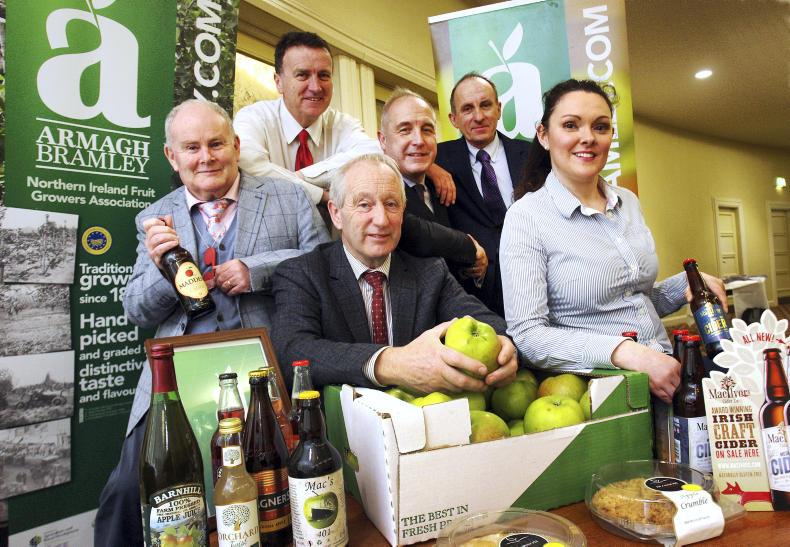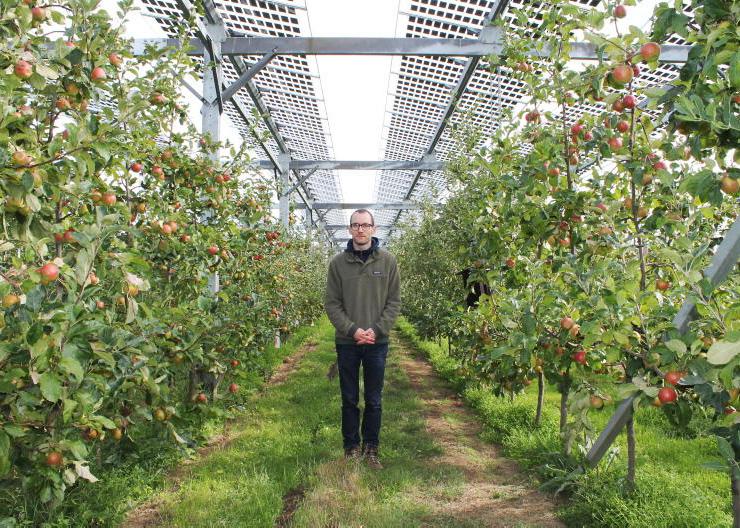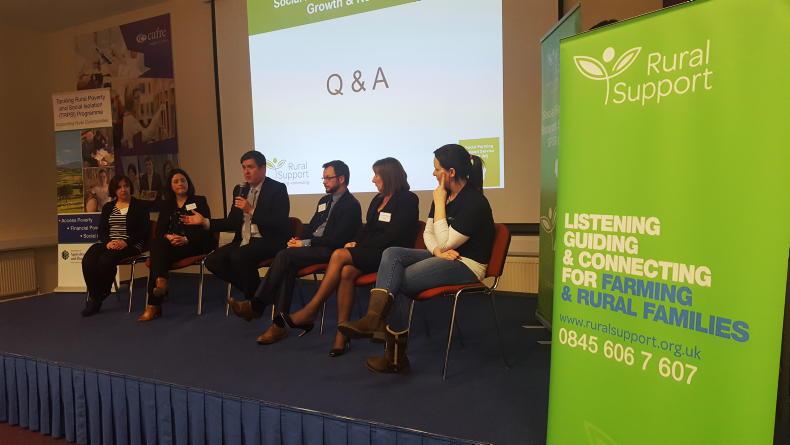Growers in NI who rely on seasonal labour have been urged to work together to establish their overall needs, and to appoint someone to manage recruitment and the supply process for 2020.
Speaking at the NI Fruit Growers Association (NIFGA) apple conference in Armagh, David Camp from the UK Association of Labour Providers, said it was important to have early conversations, especially if growers want to access Year 2 of a government pilot scheme. The first year of that pilot allowed 2,500 seasonal workers into the UK, and for this year it is expected that the UK government will soon announce the figure has been raised to 10,000. Two scheme operators – Concordia and Pro-Force, were licenced to manage the pilot
“If you can co-ordinate, and say that we need 600 workers in NI, then you stand a better chance. The feedback we received from growers on Year 1 of the scheme was positive” said Camp.
Most of those workers in Year 1 came from the Ukraine, followed by Moldova. Two scheme operators – Concordia and Pro-Force, were licenced to manage the pilot and were responsible for identifying workers and matching them to farmers.
Second option
The other option is to hire workers directly, but Camp told local growers to make sure that a supplier of labour has the proper Gangmasters and Labour Abuse Authority (GLAA) licence. “Your recruiter should be a professional – not someone who has ‘lots of friends’. Stay away from dodgy informal arrangements.
“We can put you in touch with those with a licence. If someone offers you workers at a low hourly rate (below the agricultural wage) they are breaking the law, and you are complicit in that if you take them on” said Camp.
We are doing huge amounts of work to try to influence government
However, he also highlighted general concerns about the supply of migrant labour into the UK after Brexit, especially when there remains a lot of unknowns around a future immigration system. “We are doing huge amounts of work to try to influence government, and ensure they adopt a sensible policy that meets the needs of business” he said.
Compounding the issue is a changing labour market in eastern Europe, which has traditionally been a source of workers. Unemployment in these countries is now low, and seasonal workers have lots of other choices.
“They accept lots of jobs, and decide at the last minute. There are lots of no-shows. The situation isn’t likely to change unless there is a major economic downturn,” he suggested.
Apple research coming to an end
Nearly 37 years after the first replicated trials involving apples at AFBI Loughgall, the research work is coming to an end this year.
“The orchard at Loughgall will be leased from next month,” Dr Sean Mac Ant Saoir from AFBI told the NI Fruit Growers Association conference.
Mac Ant Saoir has led the apple research at Loughgall, and will retire at the end of this year.
The decision to stop the work followed on from a review of AFBI’s operations in 2015, known as “shrink to grow”.
Research base
However, it leaves around 150 apple growers in NI without a research base to help take the sector forward.
Reviewing the work done over the years, Mac Ant Saoir said that it had helped deliver a much stronger local apple industry, with yields doubling.
“Imagine if we had got the same funding support as other sectors” he said.
He also had a parting shot for decision makers in DAERA.
“Every time when we had a good policy lead in the Department, when we went back with the next project, they were gone, and we had to start again. It is a major problem to this day” he suggested.
Read more
Apple research to end at AFBI Loughgall
Agroforestry - growing grass and trees together
Growers in NI who rely on seasonal labour have been urged to work together to establish their overall needs, and to appoint someone to manage recruitment and the supply process for 2020.
Speaking at the NI Fruit Growers Association (NIFGA) apple conference in Armagh, David Camp from the UK Association of Labour Providers, said it was important to have early conversations, especially if growers want to access Year 2 of a government pilot scheme. The first year of that pilot allowed 2,500 seasonal workers into the UK, and for this year it is expected that the UK government will soon announce the figure has been raised to 10,000. Two scheme operators – Concordia and Pro-Force, were licenced to manage the pilot
“If you can co-ordinate, and say that we need 600 workers in NI, then you stand a better chance. The feedback we received from growers on Year 1 of the scheme was positive” said Camp.
Most of those workers in Year 1 came from the Ukraine, followed by Moldova. Two scheme operators – Concordia and Pro-Force, were licenced to manage the pilot and were responsible for identifying workers and matching them to farmers.
Second option
The other option is to hire workers directly, but Camp told local growers to make sure that a supplier of labour has the proper Gangmasters and Labour Abuse Authority (GLAA) licence. “Your recruiter should be a professional – not someone who has ‘lots of friends’. Stay away from dodgy informal arrangements.
“We can put you in touch with those with a licence. If someone offers you workers at a low hourly rate (below the agricultural wage) they are breaking the law, and you are complicit in that if you take them on” said Camp.
We are doing huge amounts of work to try to influence government
However, he also highlighted general concerns about the supply of migrant labour into the UK after Brexit, especially when there remains a lot of unknowns around a future immigration system. “We are doing huge amounts of work to try to influence government, and ensure they adopt a sensible policy that meets the needs of business” he said.
Compounding the issue is a changing labour market in eastern Europe, which has traditionally been a source of workers. Unemployment in these countries is now low, and seasonal workers have lots of other choices.
“They accept lots of jobs, and decide at the last minute. There are lots of no-shows. The situation isn’t likely to change unless there is a major economic downturn,” he suggested.
Apple research coming to an end
Nearly 37 years after the first replicated trials involving apples at AFBI Loughgall, the research work is coming to an end this year.
“The orchard at Loughgall will be leased from next month,” Dr Sean Mac Ant Saoir from AFBI told the NI Fruit Growers Association conference.
Mac Ant Saoir has led the apple research at Loughgall, and will retire at the end of this year.
The decision to stop the work followed on from a review of AFBI’s operations in 2015, known as “shrink to grow”.
Research base
However, it leaves around 150 apple growers in NI without a research base to help take the sector forward.
Reviewing the work done over the years, Mac Ant Saoir said that it had helped deliver a much stronger local apple industry, with yields doubling.
“Imagine if we had got the same funding support as other sectors” he said.
He also had a parting shot for decision makers in DAERA.
“Every time when we had a good policy lead in the Department, when we went back with the next project, they were gone, and we had to start again. It is a major problem to this day” he suggested.
Read more
Apple research to end at AFBI Loughgall
Agroforestry - growing grass and trees together










SHARING OPTIONS